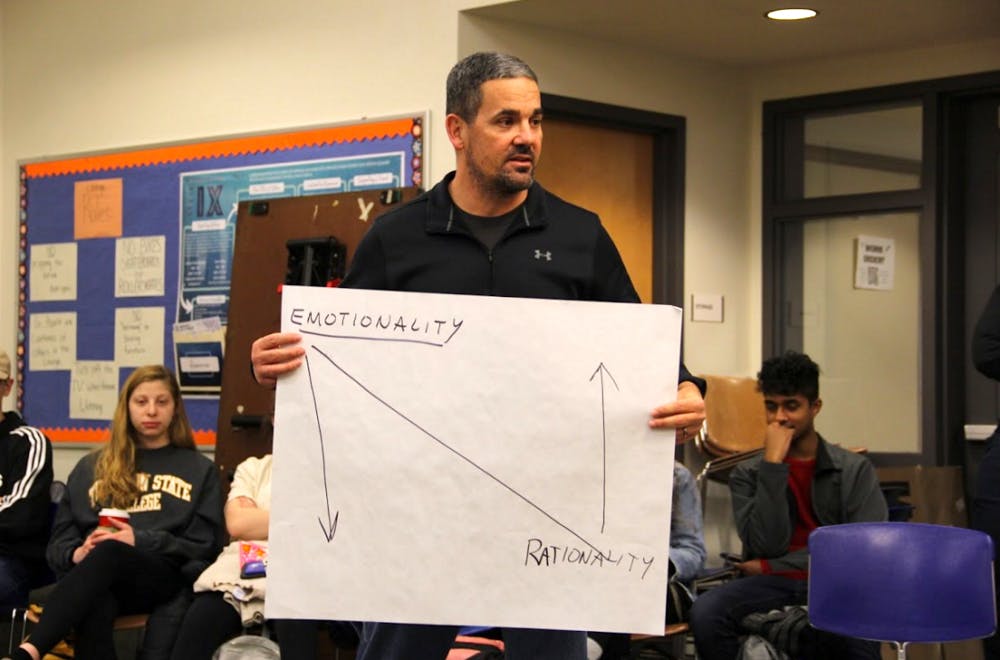By Reynaldo Torres
Staff Writer
Those at the College who struggle with anxiety, depression or any other mental disorder now have another resource to turn to — CONTACT.
CONTACT is an extension of the National Suicide Lifeline that began last fall semester and is dedicated to helping students with personal or traumatizing events. The organization runs an on-campus phone line, as well as a chat room system, that is operated by students seven days a week from 8 am to 10 pm. These student volunteers have completed a 10-week-long training course.
“My life has always been surrounded by mental health and a core of it has been suicide and suicide prevention,” said Harish Rajagopal, a sophomore biology major and president of CONTACT.

The training prepares volunteers to help students cope with issues surrounding suicide, sexual assault and drug/alcohol use. It also includes a free Mental First Aid Certification and Applied Suicide Intervention Skills Training.
Once the training is completed, each volunteer is then required to do two apprentice shifts, answering calls with the help of a trained and qualified responder. They are then trusted with answering calls by themselves and offering their help to anyone on the other end of the line.
The location of this phone room on campus is not disclosed to anyone outside of the CONTACT program. Rajagopal has plans to work with the College in order to establish a private four-digit hotline for students only that “will be advertised to the school to use.”
CONTACT already has 27 active volunteers who recently completed their training and currently work in the office. While the purpose of this organization is to help students at the College, it is directed through Mercer county.
Assisting Rajagopal in making CONTACT possible is Rhea Rhaesh, a sophomore psychology major and vice president of the club. Rhaesh’s responsibilities include overseeing all day to day communication, structuring meetings and answering her fair share of phone calls. If a student is interested in volunteering, they should “100 percent do it,” she said.
“It is a skill you can use anywhere in your life,” Rhaesh said
While CONTACT’s purpose is to help those who call the hotline when they may need it most, it has also had a significant impact on the lives of the volunteers who answer these calls.
“It’s been a different experience,” said Robert Anderson, a freshman criminology major and active member of the club. “Nothing I thought I would ever be apart of. I have nothing but positive things to say.”







